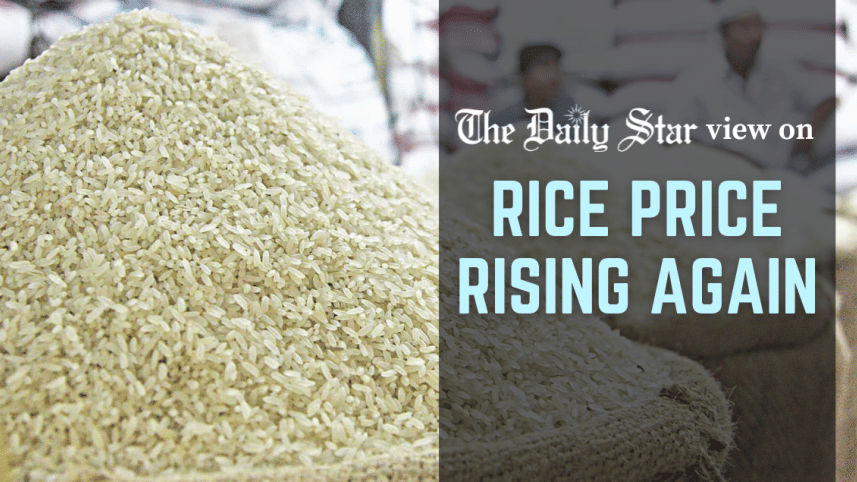The time for superficial solutions to price hikes is over

Amid already high staple prices, the price of rice has increased for a second time in just four days in the market. How are people to survive the immense inflationary pressure coming at them from all sides? While businessmen have blamed the usual suspects – the increase in paddy price, transport cost and import taxes – for the hike in rice prices, the food minister has blamed it on the actions of crooked businessmen. According to him, the hike is disproportionate with the rise in transport costs.
The question is, what actions has the ministry taken to address this? Given that the majority of people, particularly those in the lower- and middle-income groups, are facing the worst economic pressure in Bangladesh's recent history, shouldn't the government be actively looking to prevent any shady manoeuvrings of "dishonest" businessmen during this time of great national crisis?
Lower-income groups, as well as people living on fixed incomes, have already had to abandon the intake of meat, fish, etc. due to their prices being astronomically high. Recently, the price of egg – perhaps the last affordable source of protein for the poor – has risen so much that the country risks facing a malnutrition crisis soon. And that will undoubtedly set us back massively, across numerous fronts. With the price of rice now rising rapidly, what are people to eat? Can we expect them to just forgo it, too?
The prime minister has recently acknowledged the pain that the general people are going through. But why is it that we don't see such concerns, genuine as they may be, translated into greater efforts to alleviate their suffering? Given the current reality, why is it that the authorities are refusing to increase the minimum wage for workers in RMG and tea plantation sectors, for example, who are easily among the most poorly paid? How are these people and others living on fixed incomes going to afford prices of food and other essentials?
Lower-income groups, as well as people living on fixed incomes, have already had to abandon the intake of meat, fish, etc. due to their prices being astronomically high.
Even though we are pleased to know that the government is going to launch a food friendly programme (FFP), where it will sell rice at a cheaper rate for 50 lakh poor families, as well as expand its Open Market Sales (OMS) to the upazila level, these are but temporary band-aid measures. Not all people can access these programmes either. What will happen to the rest? And how is the government going to ensure that these programmes are not going to be infested with corruption, like most of its programmes are? The government needs to think these matters through, instead of providing superficial solutions.



 For all latest news, follow The Daily Star's Google News channel.
For all latest news, follow The Daily Star's Google News channel. 

Comments